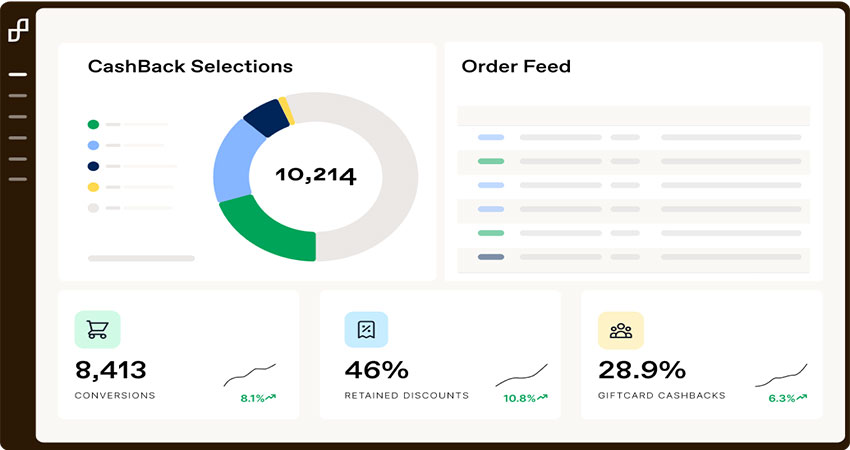Fondue, an Israeli startup that just received $10.5 million in a seed round, is looking to “crush” the prevalence of online coupon codes and replace them with a cash back program it says is more profitable and higher converting for brands.
The round was led by Quiet Capital and Hanaco Ventures, with participation from Infinity Ventures, Ground Up Ventures, Sugar Capital, Starting Line, R-Squared Ventures, Gaingels, Verissimo Ventures, Samsung Next and JAM Fund. Brand and fintech founders and executives joining the round came from Casper, TheRealReal, Thumbtack, Candid, Carraway, CatchCo, Loox, Perry Ellis, Melio, Ramp, Plaid and Venmo. Fondue has offices in Tel Aviv and New York.
Fondue’s CashBack, set up via a Shopify app, gives shoppers them the option to redeem rewards as cash back, as a site credit or as a gift card that can be of higher value. Any kind of savings or discount offers are powerful incentives in a time of economic uncertainty when consumers are looking for any kind of break.
“The call today for ecommerce brands is to profitability,” said Oren Charnoff, one of three partners who founded Fondue in May of last year. “What is the definition of coupon codes? Making less profit.”
Charnoff drew an analogy between what Fondue is doing with coupon codes and the services of startups like Happy Returns, Returnly and Narvar in a completely different sphere: increasing margins by reducing return rates through incentives, while also increasing sustainability. Instead of sending items back for exchange, using a pre-packaged return label, shoppers now have a range of options available.
“Brands realized they had to reduce return rates to increase profit,” Charnoff said. “Third-party software lets shoppers fill out a form to get a gift card or a refund instead of sending it back for an exchange. They found that by expanding the customer journey post purchase, they reduced return rates and increased profitability. It’s a model that’s helped brands grow more sustainably.”
Charnoff said coupon codes, by definition, hit the profits of ecommerce brands because they’re pre-purchased and easy for shoppers to redeem. “Brands have grown addicted to it when all they cared for is growth,” he said. “We’re revisiting the way discounting works.”
With Fondue’s CashBack, shoppers see their reward eligibility throughout the purchase journey, which they may or may not redeem. Rather than copy/pasting a coupon code or having it injected from Rakuten or Honey or RetailMeNot, shoppers can claim their cash back or a higher-value gift card. “Some shoppers don’t claim it, which totally fine,” Charnoff said. “That means they don’t care for it, and brands lose less margin.”
For now, Fondue is targeting the “welcome series,” a popup where shoppers can opt into deals by sharing their email or SMS, typically where discount codes are offered. Charnoff said in that automated sequence, brands can make cash back offers through Fondue, in addition to or even as a replacement for traditional coupon codes.
“We’ve had a lot of luck speaking to brands because they haven’t seen a lot of things like us,” Charnoff said. “It’s an efficient and crowded market, tools for brands, but we feel wonderfully alone where we are. I think that will change, because what we’re doing is working for brands very much focused on profit and the discount problem, their coupon code addiction specifically.”
Interestingly, coupon code providers themselves are sensing a shift. CouponFollow has just launched its own cash back tool for brands, while RetailMeNot is promoting its cash back days on Nov. 3 and 4.
Charnoff said Fondue has already signed up hundreds of brands, along with digital media agencies working on their behalf. “Agencies have a ton of trust in us, because we’re scaling this pretty dramatically,” he said. “Brands and agencies are great ambassadors.”

